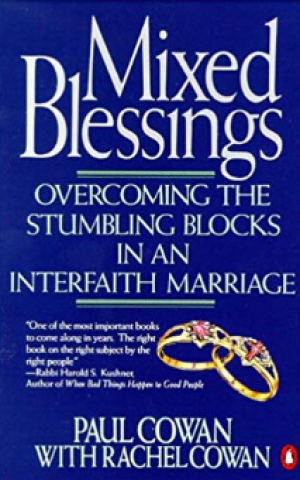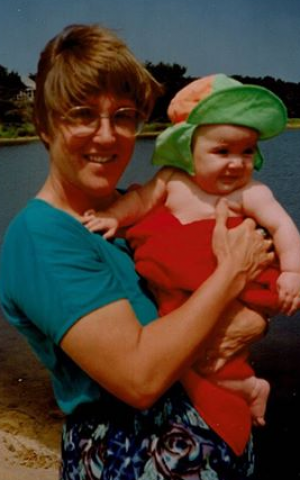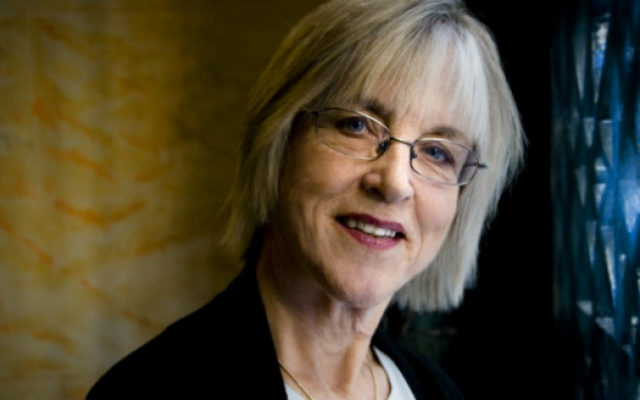Rabbi Rachel Cowan Leaves a Legacy
Rabbi Rachel Cowan, an influential voice in progressive Judaism, died last month in New York at the age of 77.
Rabbi Rachel Cowan, arguably one of the most influential voices in progressive Judaism, died last month in New York at the age of 77.
She left a personal legacy that not only brought spiritual comfort to many, but touched the lives of an entire generation of Jewish communal leaders, rabbis and scholars – many of them women. A number of Jewish Atlantans remember her.
Descended from a family that came to America on the Mayflower in the 17th century, Cowan converted to Judaism in midlife. As the program director for Jewish life at The Nathan Cummings Foundation for 14 years, she encouraged innovation in a wide range of areas.
She wrote a number of books and lectured widely, but Rabbi Judith Beiner of Atlanta believes that Rabbi Cowan’s influence is not just as an educator and progressive thinker.
“Her influence was not just cerebral but was very much felt in one’s heart and soul,” said Beiner, who is community chaplain for Jewish Family & Career Services and serves the Rodeph Sholom Congregation in Rome, Ga.
Rabbi Cowan’s work, before she became ill almost two years ago, was as director of the well-respected Institute for Jewish Spirituality in Manhattan, which not only fostered learning among a broad cross section of American Judaism, but provided training in contemplative mindfulness practices.
Beiner, who has been part of several programs run by the institute, credits her training in meditation and mindfulness with transforming a chaplaincy that often works with individuals who are ill and in physical pain.
“The mindfulness practices are tremendous,” she recalled, “and I feel that those practices come out of my mouth all of the time when I am talking to people who are experiencing difficult situations. It is as if I have a whole ‘nother tool bag because I can talk about gratitude, about patience, about resilience, about forbearance. From a skill point of view, those have been really wonderful.”
Cowan’s early work, beginning in the 1960s and 70s, was aimed at helping those, like herself, who had developed an interest in Judaism after marrying Jewish spouses, but who often felt unwelcome or experienced hostility in the Jewish world.
She and her late husband, Paul Cowan, who also developed an intense interest in Judaism as an adult, organized workshops and discussion groups to explore the difficulties that intermarried couples encountered.

Their book, “Mixed Blessings: Overcoming the Stumbling Blocks in an Interfaith Marriage,” first published in 1987, was among the first serious attempts to grapple with an issue that many believe will reshape the Jewish future.
It became an important resource for a generation of American Jews who married non-Jewish partners. Today these interfaith relationships represent as much as 70 percent or more of all Jewish marriages.
Rabbi Beiner credits the Cowans with helping the Jewish community to accommodate this major shift.
“What she did with her husband, Paul, opened the door for the Jewish community to enjoy this interfaith cohort that we now have. She did some of the groundwork for that and that was really transformative.”
Former CNN journalist David Lewis, whose wife is not Jewish, credits Rabbi Cowan with welcoming his two young daughters into the Jewish faith three decades ago.

Although Lewis and his wife now live in Atlanta, he describes how Rabbi Cowan used a pond near his family’s former home on Martha’s Vineyard in Massachusetts to create a makeshift mikvah to facilitate the conversion process.
“She was there as a kind of spiritual therapist in helping people through these big life questions for which there are no easy answers. In a very non-judgmental, very gentle way, she took you on a journey and led you through the answers that you eventually found. She was an incredible coach along that journey.”
Rabbi Joshua Lesser, himself a pioneer in opening Judaism to those who have not been readily accepted in the community, believes that Rabbi Cowan’s work was, in many ways, revolutionary.
Lesser is the spiritual leader of Congregation Bet Haverim, founded in 1986 to welcome gay, lesbian and transgender Jews.
“She demonstrated that a Jew by choice could become an authentic rabbi, that they could have a voice in our tradition. She really blew out of the water this idea that a traditional Jew has to be born a Jew or has to look a particular way, and so, I think she became a role model for many people.”
Rabbi Beiner, likewise, has no hesitation summing up Rabbi Cowan’s contribution to contemporary Jewish thinking,
“This is a woman who will be immortal. This is a woman who will have eternal life for what she did.”




comments